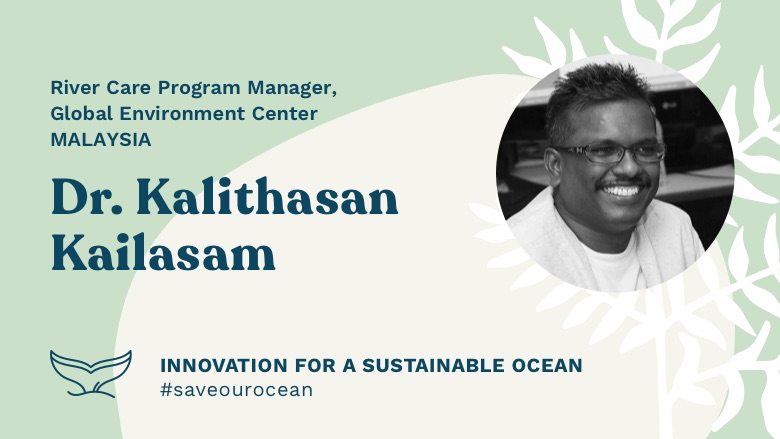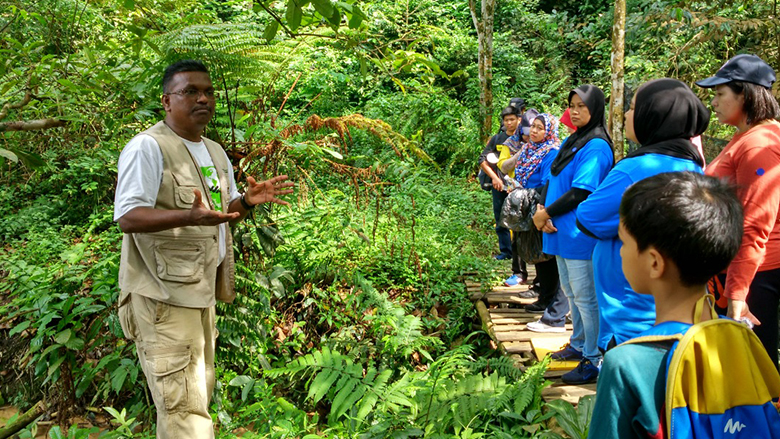Tell us about yourself.
I was born in Negeri Sembilan, Malaysia, as the youngest of nine siblings. My childhood was largely spent in a rural area, close to nature, and back then, our lives depended heavily on the natural environment. I have fond memories of most of my family’s time being around the Linggi River basin, and the surrounding beaches and oceans. Since most of my younger days was spent around water, I definitely have a soft spot for it.
On completing my PhD in Life Science focusing on the impact of pesticides on water, I quickly grabbed an opportunity to work closely on and champion issues related to the environment, particularly water. Today, I am happy to be doing what I love everyday for work to contribute to a sustainable environment.
What comes to your mind when you think of the ocean? What does it mean to you personally?
I always say this: water in itself a source of life. Within this, rivers are an integral lifeline, and the oceans are our lungs. They are all interconnected. By managing our rivers, we are also helping oceans to thrive in a more sustainable manner.
In times like this, I see people, especially the younger generation, being disconnected from nature. They do not see themselves as a part of the environment. Life begins and ends with water and so this philosophy guides the way I think. I believe we cannot run away from the importance of water issues, regardless of where we live, our professions and our and daily lives.
What do you see as the biggest challenges facing our waterways/oceans in 2020?
Without a doubt, climate change is causing major impacts on our waterways and oceans. The main challenge we face now is in the quality and quantity of water especially due to human impact via anthropogenic activities, unsustainable development, land clearing and the like. This also has major impacts for our rivers’ capacity as a regulator. Rivers are a living entity that have the ability to regulate the environment and dilute pollution. But for the last 20 years, rivers have lost this ability as its carrying capacity has been affected by growing pollution.
The same logic applies to the ocean. With so many people being disconnected from nature and unable to see their impacts on the environment, this is a core concern. Even though humans make up a small percentage within the ecosystem, we have the biggest impact.
What does this year’s World Oceans Day theme, “Innovation for a Sustainable Ocean” mean to you?
People often think of innovation in terms of technology alone, but I also see innovation as a way of rethinking our role with nature and how we see ourselves in it. For me, the most important point is that all our actions will affect the ocean but because nature sustains our lives, we will in turn, begin to see its impacts on our lives too. We need to act now. With the oceans an end receiver of the cumulation of all human activity, this is ever more urgent.


